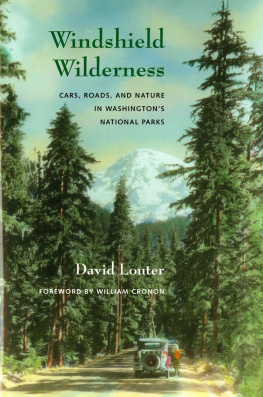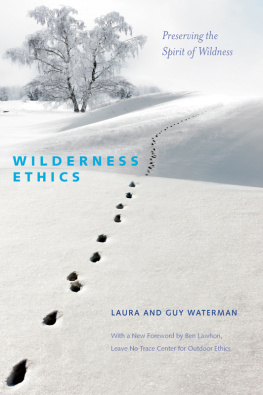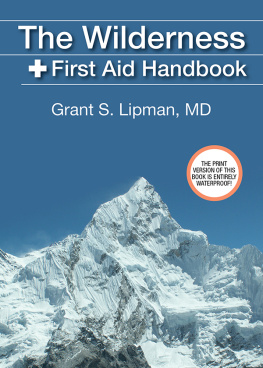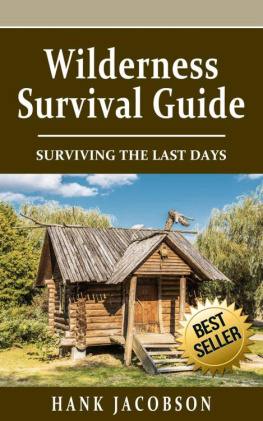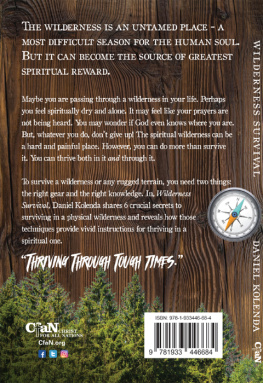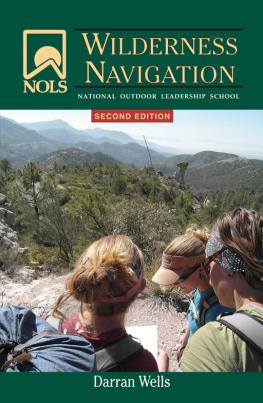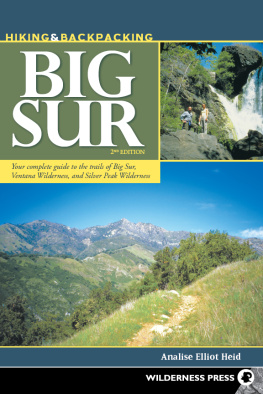
WILDERNESS
Wilderness provides a multidisciplinary introduction into the diverse ways in which we make sense of wilderness: how we conceptualize it, experience it, interact with it, and imagine it. Drawing upon key theorists, philosophers, and researchers who have contributed important knowledge to the topic, this title argues for a relational- and process-based notion of the term and understands it as a keystone for the examination of issues from conservation to more-than-human relations.
The text is organized around themed chapters discussing the concept of wilderness and its place in the social imagination, wilderness regulation and management, access, travel and tourism, representation in media and arts, and the use of wilderness for education, exploration, play, and therapy, as well as its parcelling out in parks, reserves, or remote wastelands. The book maps out the historical transformation of the idea of wilderness, highlighting its intersections with notions of nature and wildness and teasing out the implications of these links for theoretical debate. It offers boxes that showcase important recent case studies ranging from the development of adventure travel and ecotourism to the practice of trekking to the changing role of technology use in the wild. Summaries of key points, further readings, discussion questions, and Internet-based resources, such as short videos, allow readers to grasp the importance of wilderness to wider social, cultural, political, economic, historical, and everyday processes.
Wilderness is designed for courses and modules on the subject at both postgraduate and undergraduate levels. The book will also assist professional geographers, sociologists, anthropologists, and environmental and cultural studies scholars to engage with recent and important literature on this elusive concept.
Phillip Vannini is Canada Research Chair in Innovative Learning and Public Ethnography and a Professor in the School of Communication & Culture at Royal Roads University in Victoria, BC, Canada.
April Vannini received her PhD from the European Graduate School in Media and Communication and teaches at Royal Roads University in Victoria, BC, Canada, in the School of Communication & Culture as an Associate Faculty member.
Key Ideas in Geography
SERIES EDITORS: SARAH HOLLOWAY, LOUGHBOROUGH UNIVERSITY AND GILL VALENTINE, SHEFFIELD UNIVERSITY
The Key Ideas in Geography series will provide strong, original, and accessible texts on important spatial concepts for academics and students working in the fields of geography, sociology, and anthropology, as well as the interdisciplinary fields of urban and rural studies, development and cultural studies. Each text will locate a key idea within its traditions of thought, provide grounds for understanding its various usages and meanings, and offer critical discussion of the contribution of relevant authors and thinkers.
Published:
Nature
NOEL CASTREE
City
PHIL HUBBARD
Home
ALISON BLUNT AND ROBYN DOWLING
Landscape
JOHN WYLIE
Mobility
PETER ADEY
Forthcoming:
Space
PETER MERRIMAN
Migration
MICHAEL SAMERS
Scale
ANDREW HEROD
Rural
MICHAEL WOODS
Citizenship
RICHARD YARWOOD
Wilderness
PHILLIP VANNINI AND APRIL VANNINI
WILDERNESS
Phillip Vannini and April Vannini
First published 2016
by Routledge
2 Park Square, Milton Park, Abingdon, Oxon OX14 4RN
and by Routledge
711 Third Avenue, New York, NY 10017
Routledge is an imprint of the Taylor & Francis Group, an informa business
2016 Phillip Vannini and April Vannini
The right of Phillip Vannini and April Vannini to be identified as authors of this work has been asserted by them in accordance with sections 77 and 78 of the Copyright, Designs and Patents Act 1988.
All rights reserved. No part of this book may be reprinted or reproduced or utilised in any form or by any electronic, mechanical, or other means, now known or hereafter invented, including photocopying and recording, or in any information storage or retrieval system, without permission in writing from the publishers.
Trademark notice: Product or corporate names may be trademarks or registered trademarks, and are used only for identification and explanation without intent to infringe.
British Library Cataloguing in Publication Data
A catalogue record for this book is available from the British Library
Library of Congress Cataloging in Publication Data
Names: Vannini, Phillip, author. | Vannini, April, author.
Title: Wilderness/Phillip Vannini and April Vannini.
Description: New York, NY: Routledge, 2016. | Series: Key ideas in geography | Includes bibliographical references and index.
Identifiers: LCCN 2015042493 | ISBN 9781138830981 (hardback: alk. paper) | ISBN 9781138830998 (pbk.: alk. paper) | ISBN 9781315736846 (ebook) Subjects: LCSH: Philosophy of nature. | Wilderness areasPhilosophy. | Human ecologyPhilosophy.
Classification: LCC BD581.V28 2016 | DDC 304.2dc23LC record available at http://lccn.loc.gov/2015042493
ISBN: 978-1-138-83098-1 (hbk)
ISBN: 978-1-138-83099-8 (pbk)
ISBN: 978-1-315-73684-6 (ebk)
Typeset in Joanna MT
by Sunrise Setting Ltd, Brixham, UK
CONTENTS
Bradys Beach, Bamfield (Photo: April Vannini)
The most difficult aspect of writing a book is the first paragraph. Hours, days went by as new opening paragraphs were drafted, evaluated, and then quickly discarded. The writers block seemed to drag on forever. Frustrated, tired, and anxious at the impasse we eventually resolved to put books, journals, and computers away and headed out for a leisurely walk in the woods hoping for inspiration.
It was an overcast autumn afternoon. The late September rains had begun wetting the forest floor after a long summer drought and the first wild mushrooms of the season, our favorite chanterelles, had sprung to life. Upon sighting their long-awaited arrival I (Phillip) ran back to our parked vehicle and grabbed a cloth bag in order to collect them. These delectable wild things can grow in unpredictable quantities wherever they please, without a care in the world for paths, trails, or any other instruments for channeling human mobility, so soon enough we were traipsing deep in the bush and filling our bag one mushroom at a time, careful enough to respect the forests thick undergrowth with our steps, but determined to find and bring home as many as possible.
Two hours later, our reason for being in the bushes in the first placecuring writers blockhad dissipated in the silent darkness of the Pacific temperate rainforest. Our concerns with this books introduction and with a million other mundane scholarly preoccupations had been rendered utterly meaningless by our primal hungerwell, appetite, reallyfor freshly harvested food and for a deeper, however momentary, connection with the wild. Our habitual tendencies to rush through the days list of multiple tasks and chores had been slowed down, almost magically, by the slow-growing ancient cedars and hemlocks we walked around. It was in this way that, almost magically, our reason for bothering to write this book in the first place had resurfaced. Simply put: we love wilderness and all things wild. Therefore it was precisely in the wildwe realized upon our return to the officethat this book should set off.


